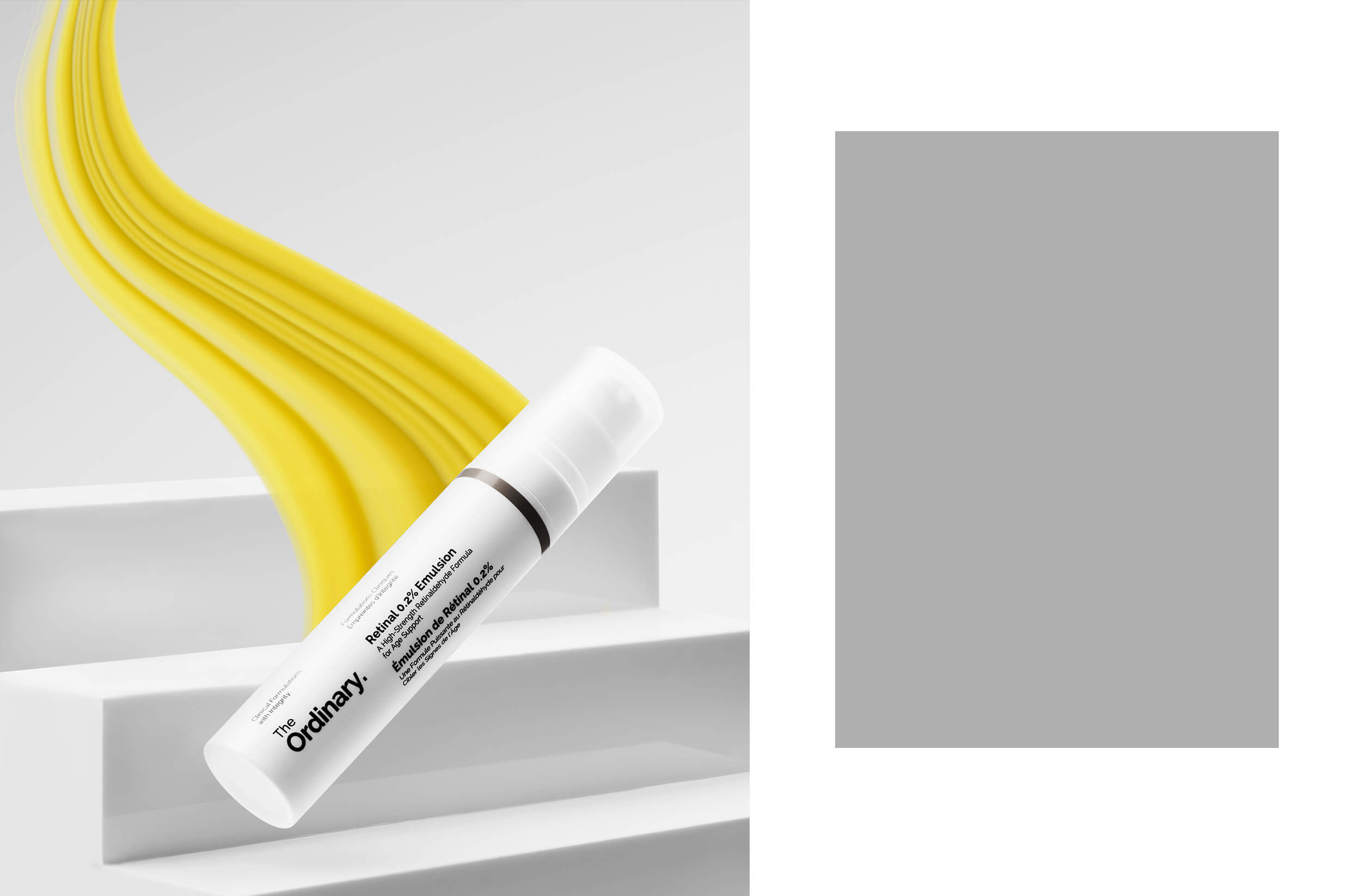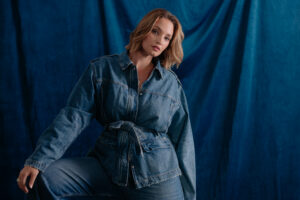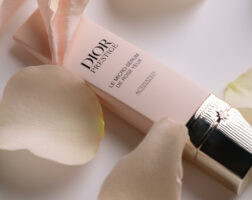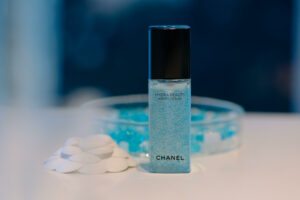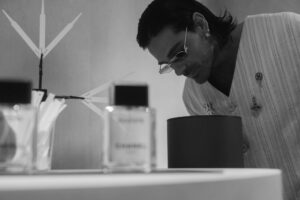In a fascinating conversation, I delved into the world of beauty and skincare with two of the leading minds behind The Ordinary: CEO and Co-Founder Nicola Kilner, and Science Communications Manager Rita Silva. From their earliest beauty memories and product obsessions to the challenges and triumphs of building a revolutionary skincare brand, Nicola and Rita shared with enthusiasm their personal stories and professional insights.
Together, we explored the secrets behind The Ordinary’s success, the importance of authenticity, and the future of skincare as seen through the eyes of those at its forefront, revealing the heart and soul behind one of the most disruptive brands in beauty today.
What’s your first beauty memory?
N: I think mine would be my mum – watching her in the morning, using the classic L’Oreal Elnett hairspray, rollers in. You know, it’s interesting because my five-year-old daughter loves being in the room with me when I’m putting my makeup on when I’m getting ready, so you can kind of just see that mother-daughter relationship that continues. That memory would be my favorite.
R: Well, my mom is definitely nowhere near as glamorous as me [laughs]. She’s a lot more laid back. So, I think that I had to kind of seek those “glamour” moments and beauty moments outside.
Plus, who in the 90s hasn’t committed that faux pas of trying to use black eyeliner as lip liner? I, too, was trying to find some way to experiment. So, one of my first memories is using black eyeliner as a lip liner and then taking pictures of myself and feeling myself, thinking that I was like a telenovela star because I’m from Portugal and we watch a lot of Brazilian soap operas, and I found those women so glamorous and so beautiful and I just wanted to look like them. So, I guess my first beauty memory was more makeup-related than skincare-related.
I think it’s the visual of it that attracts you when you’re a child, right?
What was your first product obsession? Probably eyeliner for you, Rita.
R: [laughs] I would say eyeliner, for sure. I would do the whole shebang. Also, when I was younger, I was a little bit alternative, I would say. So, I would go hard with the eyeliner and just do the whole eye, top and bottom. That was my very first love when it came to beauty.
N: You know, when I was a teenager, I was a natural blonde, but then my hair started to get darker. My mom said I was far too young to have highlights, but I remember the one-week summer holiday she’d let me dye my hair: I put a sort of lemon juice in it and prayed, “Go blonde, go blonde!” [laughs].
A question for Nicola: what inspired you to join Brandon Truaxe in building DECIEM, and what were the challenges you faced in the early stages of the company?
N: I used to work at Boots, the pharmacy chain, in the UK. I was a beauty buyer, and that’s how I met Brandon. He’d left his previous company and told me he wanted to start a new thing called DECIEM, and asked, “Do you want to come and do it with me?”. I didn’t even think twice. Brandon was just the most charismatic person ever, you just instantly felt his presence, and you knew he was going to do incredible things. So, I quickly joined him, and it’s interesting because we had different brands and The Ordinary was only the 11th brand that we launched under DECIEM. We learned so many lessons from those early years. You know, sometimes maybe we listened too much to what we thought the consumer wanted, and with The Ordinary, it was the first time we sort of ignored every data and every trend. When we first presented it to a couple of the biggest retailers in the world, they said no to launching it because they believed customers wouldn’t have understood it, they said, “It’s too complicated, white packaging will get dirty, the text is too small, etc.”. However, we said, “You know what, it’s actually okay if no one buys this. There’s a niche who might like this approach, or we just launch it online and see what happens”. It’s so interesting because I think no one predicted how many consumers would love to learn about the ingredients and have that approach. If you look at insight, The Ordinary is what everyone else is looking at, and that’s why things in skincare become so much of the same. But actually, when you just trust your gut and take a risk and try something new, that’s really how new trends and innovation happen.
We’ve always produced our own stuff, and in the early years of the ordering, we never were in stock, because as soon as we produced it, it would sell out. Later, we lost Brandon in January 2019, but we had a very publicly difficult year, so we had a lot of challenges along the way, I think we’ve always had this spirit of being a group of good humans who genuinely care for each other and we are passionate about what we do: that I think has got us through every tough time.
Rita: as the Science Communications Manager, how do you ensure that The Ordinary maintains its commitment to honesty and clarity in its communication with consumers?
I think that’s a big part of why the scientific communications department exists, to begin with. As Nicola was saying, you know, we lost Brandon and he really was that person who kept the communication in the company honest and true to the science and really brought that to life in everything that he wrote. All copies, everything that you read about our products in the beginning were all written by Brandon. So, when we lost him, there was a huge gap in maintaining that closeness to science.
We always go against marketing and fluff and try to keep the communication of the products as honest of a science as possible, and that comes with keeping up to date with the science that’s happening in the world, and always being ready to be proven wrong. This is something that, as a scientist, I learned very quickly: you can’t have an ego as a scientist. The first thing that you need to be ready for is to be proven wrong because that’s science. Science is development, is discoveries, is one theory coming in and disproving an old one. So, we’re always keeping ourselves up to date, always ready to come clean to our consumers and think, “We used to say this, wow we’re updating our views because there’s new research”.
As Nicola mentioned, we had a campaign called “Everything is Chemicals”. And that campaign was born basically from an article that said Sephora was going to work towards a chemical-free future. As a scientist, I thought, “Chemical-free? What are they going to do, vacuum?”. You know, even air is made of chemicals, water is a chemical, everything is chemical. So, we decided to do a campaign about it. That is something that I love about DECIEM: it’s a type of company where you can bring an idea like that and it’s not only accepted, it’s celebrated and elevated. Since then, we’ve tried to stay true to that: we look at the work of the whole of the scientific community and then we bring that to the consumer in a very easy-to-understand, digestible way.
Something that we’re always learning is how to communicate the science of our products to the consumer in an easier way every day.
The Ordinary is known for its disruptive approach to skincare. How do you balance this disruptive nature with the need for scientific accuracy and consumer education?
R: Well, I think that science is disruptive. Science is always trying to outdo itself. Scientists are always trying to either confirm something that is a breakthrough theory or disprove an old theory and bring in a new one. You know, as a scientist, you shouldn’t never look to keep the status quo. You should always look at new developments. So, because science is disruptive, and we always try to stay true to it, for us it comes really easy. But obviously, because we are a consumer goods company, we have to ensure that we have the consumer in mind. Sometimes it’s just the way that we communicate it. We are always mindful that people may have their own preconceptions from things that they’ve read online, things that they’ve heard in the news, or through word-of-mouth. So, we’re never arrogant about it. We always try to tell the consumers that we know that they’ve done their research, that their concerns are heard, and that if they don’t like to take risks, we have something new and they may want to consider it.
It’s all about being honest and humble and hope that people join you in the journey. We’ve been very surprised a lot of the time by the reactions of consumers. Sometimes they are perceived by the industry as if we need to do everything to cater to their beliefs and what they are doing right now, and what’s trending right now, but the truth is that consumers are a lot more receptive to newness and to changing their mind and to receiving new information than you think.
Rita, how does your background in the arts influence your approach to communicating the science behind skincare products to consumers?
That’s a great question. I feel like because I wasn’t a scientist for so many years, or I didn’t think of myself as a scientist, it was very easy for me to put myself in the minds of consumers that don’t have a scientific background. I only started studying science when I was 26. I was in London, I worked all over the place, and the last time I had to study science I was 14 because in Portugal, you get to choose if you want to do arts or science very early on when you’re 15.
I had to do one year of intense education just to get into university, focusing on biology, chemistry, etc., and I was in situations where I had tutors who were just speaking to me as if I had some sort of background when I didn’t. So, I had to find creative ways of learning science as quickly and as effectively as possible. And I almost always leaned towards science communicators online, which are people really good at communicating science and making it really simple. One of my favorite people in the whole wide world is Hank Green, who’s John Green’s brother. Hank is a brilliant science communicator. If I had not seen Hank’s videos while I was studying, so many of the basic concepts of science would have escaped me. And the way that he was teaching them so normally and naturally and so excessively was a huge inspiration for me. So, I think I took inspiration from Hank. I also took inspiration from one of my tutors at university who was always really good at explaining, using euphemisms, using his own body, and using words that are accessible to people and I always try to carry that with me everywhere I go. I feel that being from that artistic background, you feel like you are creative before you are a scientist, so you always try to find creative ways to portray science and you always try to connect with everyone around you, which is something that artists always want to do, whereas scientists may not have that in mind as much, they may just want to get on with their research.
However, I have that creative side, so I always want that connection, and I think that really helps the community of science.
With its focus on making quality skincare affordable, The Ordinary has gained significant popularity over time. What do you attribute this success to, and what are your plans for future expansion and development of the brand?
N: I think that if a brand first launches with these price fees, the original feeling would be, “It must not work, it must not be effective”, but we were very lucky. The UK was one of our core markets to begin with, and if we go back nine years ago when The Ordinary first launched, influencers weren’t as big or powerful as they are now. It was still more traditional beauty press and journalists but we were very lucky that they all had such a direct relationship with Brandon and myself. Straight from the get-go, they wanted to try the product. Then, as the products are all about efficacy, they quickly realize that they actually work. Plus, the journalists had the desire to understand the science and, in our case, they could understand the science.
A couple of years after that, there was the rise of social media and it was perfect timing. We gave the average consumer the tools to have a conversation about skincare, because pre The Ordinary it was very difficult to talk about it, the conversation was more about marketing, more descriptive, whereas now we all talk about our skincare and we understand what we’re using. If I think about how my mom used to buy skincare… It would be based on the magazines she read, or she’d walk into a department store and listen to whoever got her attention behind the counter, or maybe she’d buy what her sister had recommended; now, the whole world shifted, people would go on Instagram or TikTok or Facebook and talk about the products and give each other recommendations, which is an independent system though, it has nothing to do with us.
It’s a new wave of conversation, where we have platforms like social media that provide a sort of micro-education, and people love learning, which is really nice.
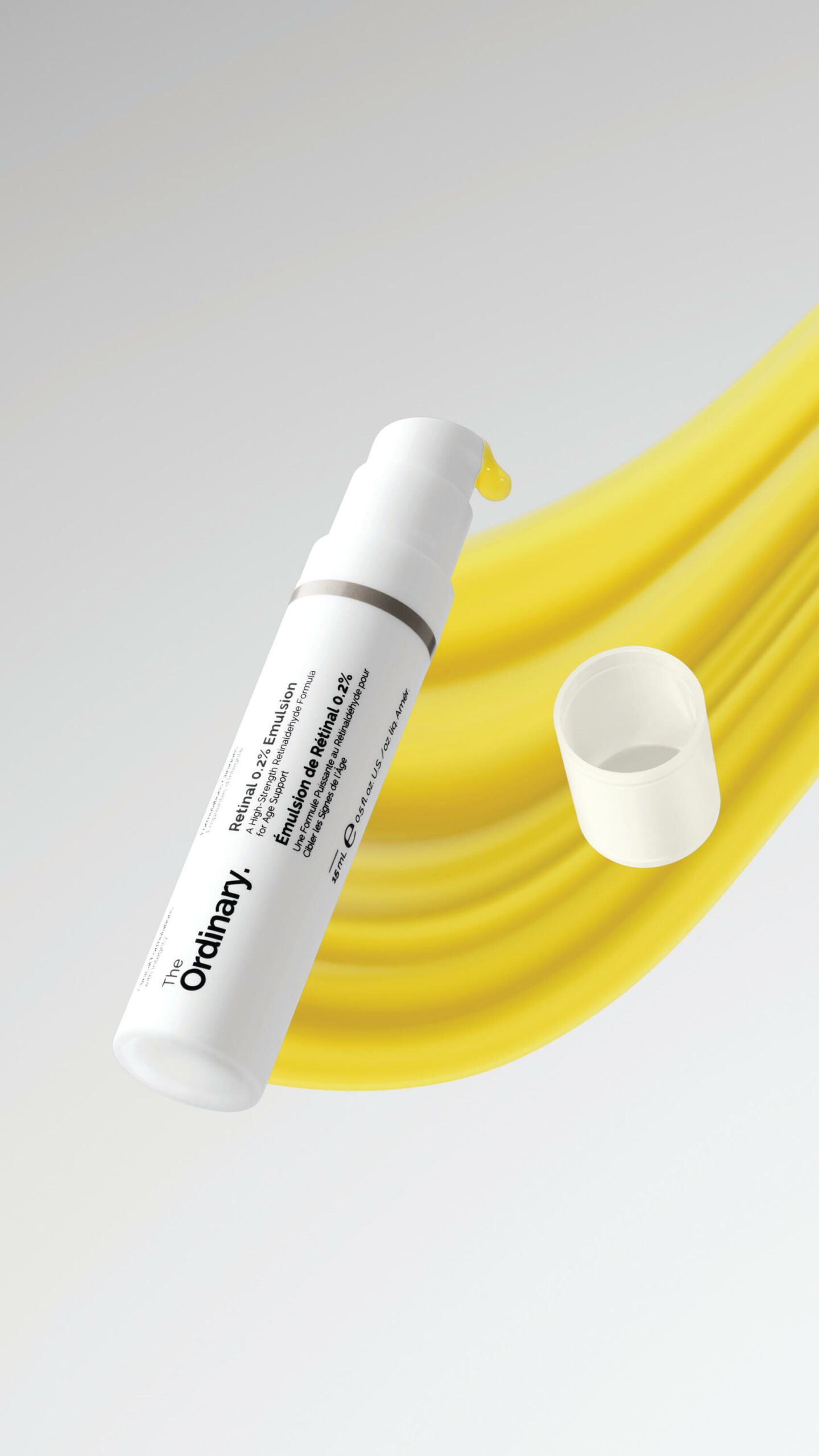
Nicola, what advice would you give to aspiring entrepreneurs or people looking to make a positive impact in the beauty industry?
N: Take risks, think about all the big companies and not at the tiny rabbit that could run into the bunny holes, look at reports, and insights, and focus on finding things out based on what everyone else is looking at. Be quick, be agile, and be not afraid to change.
It’s difficult at every life stage, but I truly believe that success is in the early days. We were all just a bunch of early 20-year-olds who had no commitments, who gave all to doing The Ordinary; now I’ve got three children, so it doesn’t mean you can’t do it, but especially if you’re young and commitment-free, there’s no better time than when you’ve got no responsibilities; if you have some savings, just go.
The Ordinary can be described with a motto, ITS motto: “Clinical Formulations with Integrity”. What’s the meaning of integrity to you? In which way does it translate both in your brand and in your life?
N: I think it’s the same in life and career: integrity is just about being you. I think the world is becoming a better place, now everyone can be accepted for who they are, flaws included, and strengths included. I think is important not to pretend to be something you’re not and be open to development and things you want to work on.
Integrity is around making decisions for the right reasons and really following them through. I think your words are really important for integrity, so it’s authenticity and it comes over time.
R: Well, you’ve said it all! [laughs]
Growing up, was there a part of yourself that was difficult to “accept”? How did you deal with it?
N: The fact that I’ve moved to a village in England, away from London. There are so many big, interesting, and glamorous cities in the world, but I’m such a person for whom family is above everything, and being around nature, with my family, is much more important than living in a big city. Even though we have far fewer museums and food options, we have family, which you can’t replace. However, sometimes I almost feel embarrassed that I don’t live in cool cities like New York, London, Milan, Paris, so that’s probably one of the things that I find difficult to accept.
R: Well, I could write a book about this [laughs].
When I was younger, I was an outsider. I was also brought up in a small town, but I’ve always been a big city girl, so I always felt a little bit out of place where I was, but I also felt that when I’d found my people, I’d flourish. That really came true: once I started to go to the bigger city next to my hometown, Porto in Portugal, I found my friends and people who accepted me for who I was. But even when I was already surrounded by good friends and fully accepted by my peers and those who were with me every day, when I told my mom that I was gay, she said, “I’m happy for you. I’m not happy about it, but I just want you to be happy”. I got married recently and my mom and dad were in tears, my brother was even more in tears than the two of them put together, and for me, that was the realization of how sometimes people don’t accept you because they don’t know what that’s going to entail, they don’t have the contact with the full you because you’re not being absolutely open with them, so when you introduce something new, they’re skeptical about it. But once your family and the ones you love understand that that’s a part of who you are and that it makes you more special and more beautiful, everyone suddenly becomes a participant in your happiness and understands that they can really enjoy it.
A life-changing moment for me, and I get emotional every time I talk about it, was seeing my whole family at my marriage. It was the most emotional family function I’ve ever been to because I had aunts that didn’t even speak to each other, from two different sides of the family, become best friends at my wedding. There was so much love, everyone was there for us as a couple, people that I would have never thought would be there for me, so it was an amazing experience. I’d like the whole world to open themselves to getting to know everyone around them and understand that sometimes what makes them different is what makes them the happiest and that allows you to be part of their happiness every day.
What’s the first The Ordinary product that touches your skin in the morning?
N: So, mine would be the cleanser, in the morning. I normally use the Foaming Cleanser and then Niacinamide.
R: I would say the Squalane Cleanser if I’m removing makeup, for sure, but in the morning, I have dry skin, so I just splash some water onto it. My favorite serum is the Multi-Peptide + Copper Peptides 1% Serum, it is brilliant, and I love copper peptides, they were the very first peptides to be explored for use in cosmetics. They were discovered by a woman, Lauren Pickard, and they were basically put to the side for two decades, but recently they had a resurgence in cosmetics. They’re amazing, they reduce signs of aging, and improve skin texture. We basically democratized this ingredient that was being sold sometimes for hundreds of pounds, and we’ve added it to The Ordinary after we ourselves used it in NIOD, our line that uses those big breakthrough technologies, the newest technologies in the market, that are more expensive to buy from a manufacturing perspective. So, sometimes we started with those ingredients that were already democratized in the industry, but then we moved into democratizing those ingredients that we truly believed in. I’m not surprised that we started with copper, because it’s really an ingredient that’s close to our hearts, for sure.
And what’s your skincare routine before bedtime?
N: Mine would be the Squalane Cleanser for the evening to remove all of my makeup, but then it would depend on the night. I feel like in the morning I’m consistent, whereas at nighttime I tend to swap treatments more. At the moment I’m loving the retinol: I’m using it twice a week, and I think it’s probably one of our few products with which, from such a little use, you can really quickly see the difference in your skin. I mean, all the products are amazing, but I truly find it a remarkable breakthrough at that. It’s my favorite nighttime at the moment.
R: Yeah, I really hope you love it because if you use a retinoid, you will see a difference the next day. But this one, because it is a high concentration of a molecule that is so close to the bioactive form of vitamin A, it is dramatic and it’s amazing. It leaves you with a beautiful glow the next day, and over time, it really helps to reduce signs of aging like fine lines, loss of elasticity, loss of firmness.
It’s also a product that I use in the nighttime. I would say I always start with a double cleanse: Squalane Cleanser and then the Glucoside Foaming Cleanser. After that, I go with a hydrating serum; sometimes I would use the Copper Peptides and sometimes I would use something like a hyaluronic acid, and then I always try to alternate between retinoid or an exfoliating product. Currently, I’m loving our retinol for sure, the Retinol 0.2% in Squalane. I have really dry skin, though, and retinol is so potent that I find that if I was to use any other exfoliating product, it would be too harsh for me. Before that one, I was using the NAAP by NIOD, the Non-Acid Precursor, which is again another exfoliating product that doesn’t use direct acids. So, this one is the new replacement for NAAP for me, and I love it, it’s supposed to be softer. Then I always finish with the Natural Moisturizing Factors + PhytoCeramides, the rich moisturizer, morning and evening.
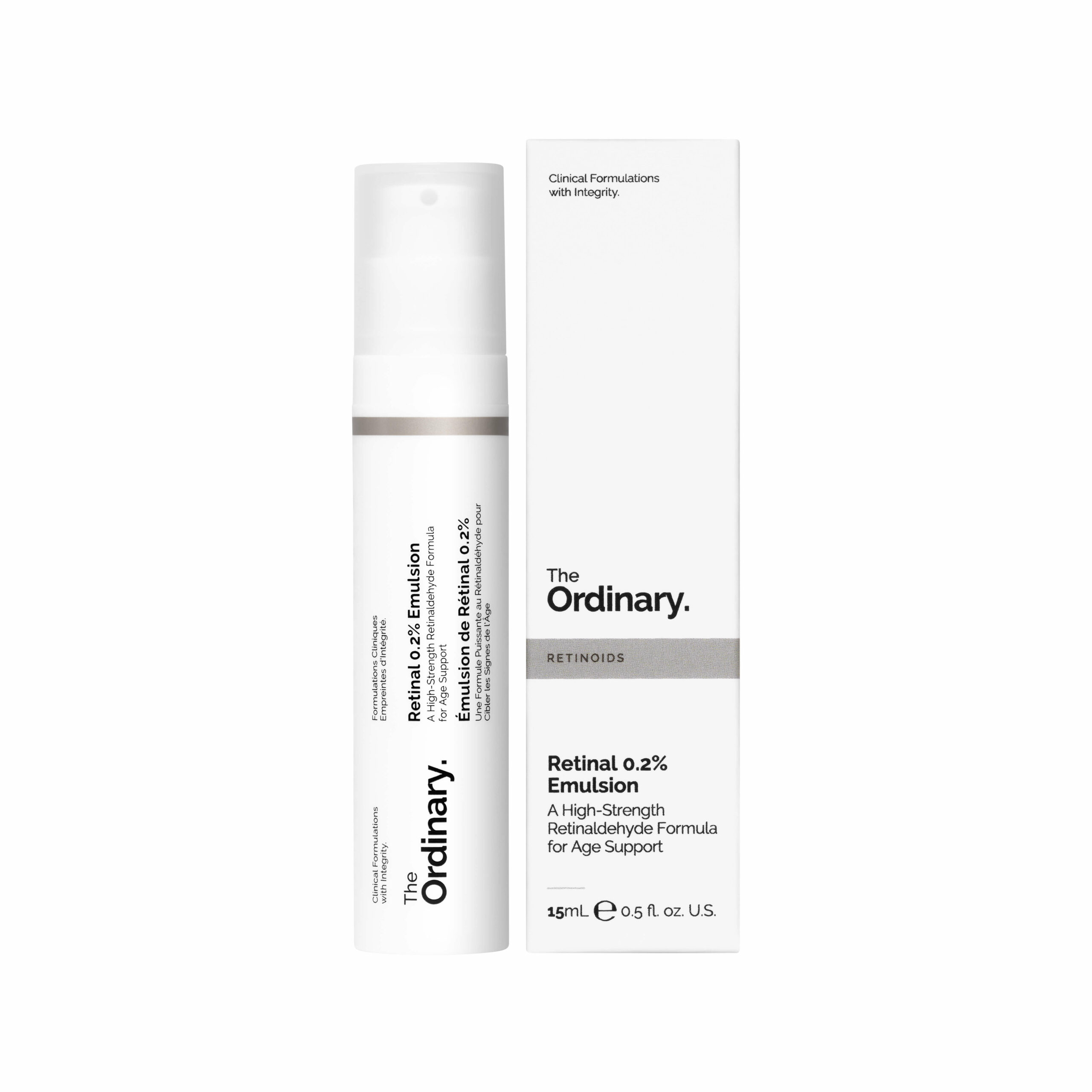
Is there any beauty secret you can spill out to us that you have learned in the years?
N: Someone once told me something that really resonated with me: the truly most beautiful thing on anyone is a smile. This doesn’t mean that you should fake happiness if you’re not happy, but it means that, if you smile, you feel better and other people around you start smiling as well. This sounds so cheesy, but even if you feel sad sometimes, just by smiling you can actually feel your whole mood change.
R: That’s true.
I have like a “science” secret, but also a “non-sciencey” one: I could literally have no makeup, nothing at all, but if my hair is big and voluminous, then I feel gorgeous. So, for me, the secret is having big hair: sometimes it can start your life out. At least that’s what I feel. I just I love the vigor of the hair…Dolly Parton once said, “The bigger the hair, the closer to God” [laughs]. I’m not religious, but this is my my go-to when I want to feel good.
My other secret concerns skincare. I always find that people experiment a lot with their skincare. When you are younger, maybe your skincare concerns are not as homogenous as when you’re older, but once the hormones are playing less of a role in your skincare concerns and your skin is more stable, and you’re just trying to maintain the appearance of the skin, the best way of taking care of your skin is, first and foremost, wear sun protection. The sun is the biggest offender when it comes to a lot of skin conditions. Then, besides the sun care, I would say it’s very important to use a retinoid at nighttime and an antioxidant in the morning, maybe something with vitamin C, and always moisturize. That is the best skincare routine for most people, at least I always recommend it to all of my friends over 30. So, antioxidants, retinoids, sun protection every day and you’re good to go.
How are you practicing self-care? How do you manage it all, is it a way for you to always try to stay balanced?
N: I have two young children, so, for me, self-care is spending time with them. You know, in the morning they come into my bed, we cuddle, and I feel good.
I firmly believe your life is made of different chapters: I like to think of it as made of seven-year chapters. And I think I’m in that seven-year chapter focused on nurturing young children. So, right now my free time is all about my children, and it’s fine because I know that in the next seven years when they start to gain independence, I will have more time for classes and reading more books and all the other things that I love to do, but I’ll never get this chapter again. So, for me, at the moment, that’s my self-care ritual.
R: My self-care is eating good food: right after cosmetics and skincare, the most important thing to me is food. You know, my wife is a chef and that’s a blessing because I just love good food: I’m trying something new every week. I have the privilege of living in London, where you have so many new things to try – a new restaurant, a new exhibition, a new movie to watch, and all of this surrounded by your friends doing those things that you love with you. I find that, nowadays, we’re so focused on things like exercising every other day, meditation, supplements, and all these things that sometimes are associated with self-care, but for me, the thing that makes me the happiest is just being surrounded by people that I love, doing things that I love, that is eating and dancing.
The beauty product on your nightstand?
N: Mine would probably just be water, which actually is still one of the best beauty and skincare ingredients out there.
R: Yeah, absolutely. Water and magnesium. I feel like magnesium is one of those supplements that I actually believe in. You know, the science behind it is really sturdy and it’s amazing for sleeping and for your digestion. So, on my nightstand, there are a bottle of water and my tub of magnesium, and that’s it.
What do you have too many of?
N: You know, not only do I have pretty much the whole The Ordinary collection, but we’re also always trying new formulas, which means that I have different versions of different things. Honestly, I sometimes look at my bathroom and think, “Gosh, I need to clear it again” because it’s just overwhelming how many products are the same.
R: For me, it’s skincare products and condiments [laughs]. My wife and I actually had a clear-out on Sunday: I cleared out the bathroom and she cleared out the pantry because we literally had so many things, plus I just came back from Japan, where we did a market launch, and I bought so many skincare products and so many condiments, and we needed more space.
What’s your favorite The Ordinary texture?
N: I love the texture of the Squalane Cleanser. It’s so relaxing the way that it melts into balm, almost naturally. You just massage your face with it on and feel everything melt away. That’s my favorite texture.
R: Mine is the Natural Moisturizing Factors + PhytoCeramides moisturizer. You know, most moisturizers are oil-in-water emulsions. So, you have a water external face with tiny microscopic droplets of oil dispersed, and that’s how it makes an emulsion. But our Natural Moisturizing Factors + PhytoCeramides is actually a water-in-oil emulsion, with an oil external face with tiny little droplets of water dispersed. That’s why the first thing that you feel when you touch it is the oily slip of the cream, which I love – I love a rich, nourishing cream. Then, as you rub it into the skin, it’s almost like the tiny little droplets of water start to mix with the rest of the formulation, and you feel this refreshing feel, and then it leaves your skin so dewy. So, if you like that “glazed donut” dewy look, it’s the perfect product for you. We’ve been using it in fashion weeks over the last year and the model’s faces always just look like a beacon of light, when they went into the spotlight, it looked amazing.
What does “feeling comfortable in your skin” mean to you?
N: I think it’s just being happy. You know, I still get breakouts but it doesn’t bother me that much anymore because I know it’s part of hormones, it’s part of being a woman, it’s part of life. So, I think it’s just the acceptance of knowing that we’re all so much more than just our appearance. And if you have a good heart and you have a good mind that naturally shines through, I think that’s the most important thing.
R: Yeah, it’s accepting yourself for who you truly are. It’s not even confidence, it’s just knowing your place in the world and that a lot of the standards that we held to are completely unattainable. We live in a world that has filters and apps that change the shape of your face and your body and smooth out your pores. No one actually looks like that in real life, and even if someone did, you know, it’s great for them, but I’m my own person. Why would I want to look like everybody else? Once you accept that, you’re always going to be different, and that’s what makes you special. I feel like that’s what will make you feel the most beautiful and the most confident.
What’s the bravest thing you have ever done?
N: I guess I did a few brave things and they all probably come down to my journey with DECIEM. When I left my job at Boots, my mum and everyone thought I was crazy to be leaving that security. Maybe I was, so that was a brave choice I made. Then, we went through lots of difficult moments with Brandon, as well. I mean, Brandon passed away when my daughter was three weeks old, and you just have to get on with it because there were too many people hurting, relying on us to get through this period. So, there were probably lots of moments of bravery through that.
R: I think that for me it was moving to London with 600 pounds to my name.
When I was 20 years old, that was it. I was in Portugal and I was just bored, to be honest. Plus, there were no jobs in Portugal, and I didn’t know what I wanted to do with my life, I was just bored and I wanted something new. A lot of my friends were moving to London, so I just decided I was going to London, too. Then, you know, we’re Catholic in Portugal, I’m not practicing, but I was brought up Catholic, so I did all the communions and got lots of gold jewelry as a present: I took all my gold without my mum knowing and I sold it all, and in that way, I earned 600 pounds and I moved to London. I couch-surfed on my friend’s couches and then I found a house to stay in where I had a roommate (not even a flatmate, I split a room with a friend). I was living my life day by day, just not knowing what the next day would bring. I would not recommend anyone to do that, and if you do it, just brace yourself because it’s difficult. Anyway, I wouldn’t be where I am now if I didn’t do it, although it was a bit crazy.
What’s the latest thing you discovered about yourself?
N: I think my discovery is actually how calm I am. I never feel stressed, and my husband, who’s also an entrepreneur, is very calm too. I think it’s one of the most important things, particularly when you get into leadership: the ability to just always have trust that everything’s going to be okay. We work in beauty, we’re not doctors, if we make a mistake, everything’s fixable.
R: Well, I’m not as calm as you, definitely [laughs]. Sometimes I do get a bit anxious, but I feel like the last thing that I discovered is that I really need community to be happy. I had a huge community of friends in London and slowly, especially after Brexit, a lot of them left. Some went back to Portugal, some moved to Spain, and so I had to rebuild that community. I feel like my chosen family is just as important as my given family, especially as a queer person – sometimes building that community around you is important. I have it as my goal for this year to build an even bigger community, especially by bringing more women into my circle because I feel like, sometimes, I miss that female connection.
I need more good friends and people that I can just be myself with because that’s when I’m the happiest.
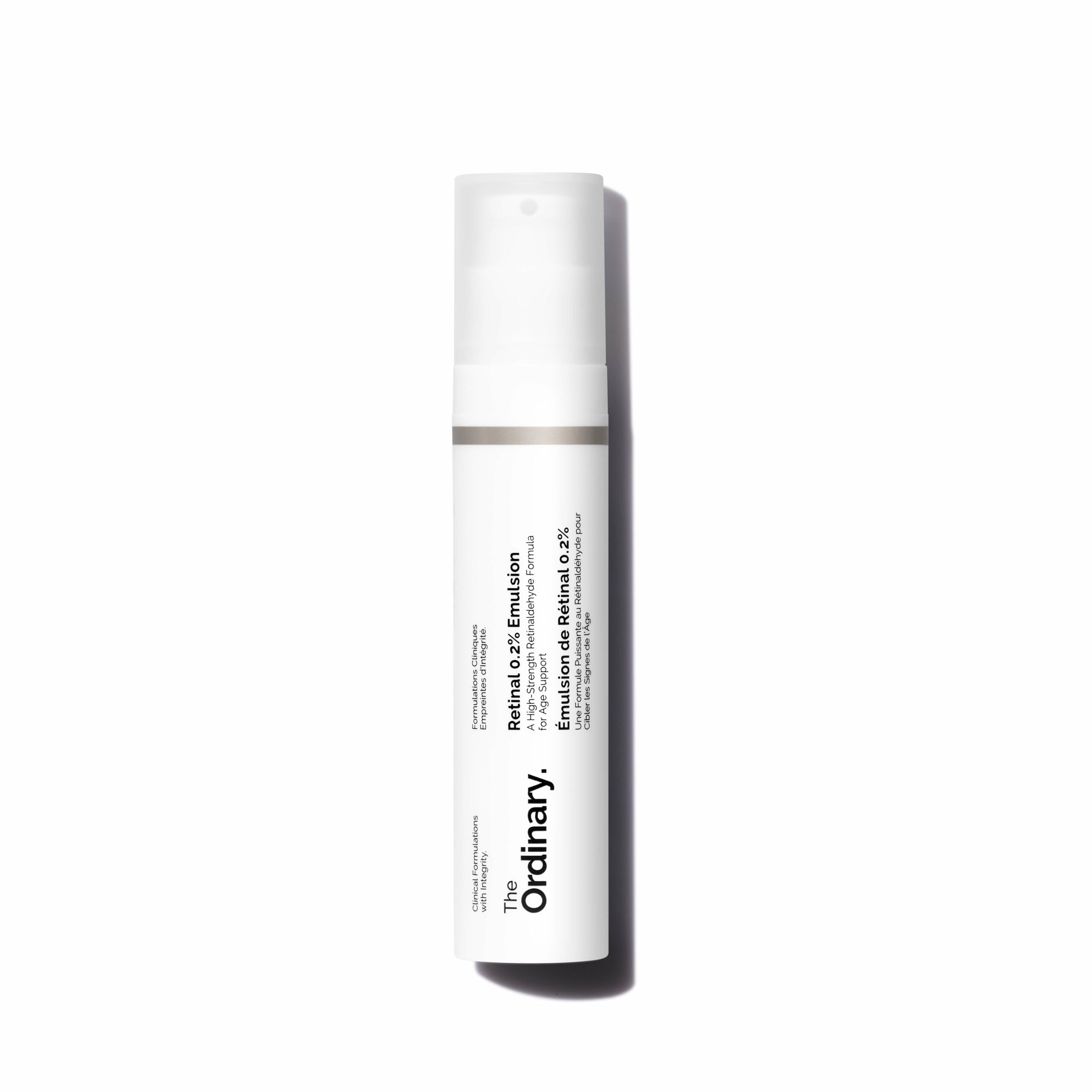
Thanks to Attila&Co.

